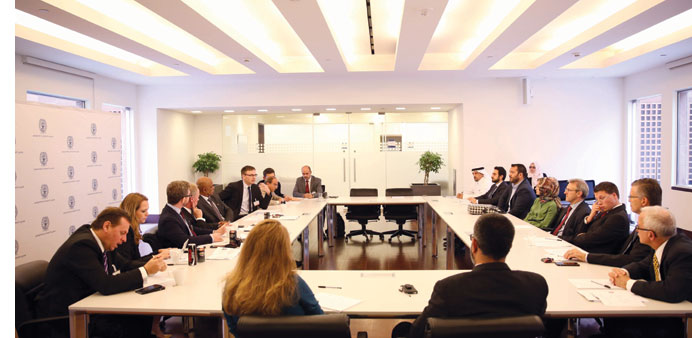A panel of Georgetown University in Qatar (GU-Q) scholars and experts led by the dean, Dr Gerd Nonneman, hosted a visiting delegation of members of the Nato Parliamentary Assembly Science and Technology Committee at a special session on its campus.
The Nato delegation was comprised of eight members of parliament, hailing from Germany, Norway, Italy, Romania and Estonia, and was led by the chairman of the Sub-Committee on Energy and Environmental Security, Jan Arild Ellingsen. At the request of the Nato Parliamentary Assembly, Georgetown University assembled the experts panel to provide an academic and nuanced understanding of a wide variety of topics relating to Qatar’s economic, social, economic and military situation both domestically and within the broader regional context.
Specific discussion points included Qatar-Nato relations, energy politics, cyber security, migrant issues, food and water security, the work of the GCC in regional conflicts, as well as education and job diversification in Qatar’s bid to move away from overdependence on energy resources.
“Diversification has been a buzzword in the region for two decades,” said dean Nonneman, in response to questions on the role of education in Qatar’s future development plans. “Qatar Foundation’s investment in education is intended both to make the country a regional hub of excellence and to build the critical skill levels they will need to diversify the economy: so it makes perfect sense that it has become a key priority,” he explained.
Ellingsen said: “We brought high expectations with us to the meeting, and Georgetown fulfilled all of them. The knowledge and expertise here at GU-Q, including their ability to explain and share these complex ideas in a way that we are able to understand, is really what makes their input so helpful to us.”
The delegation was also taken to a tour of the university’s high tech purpose-built campus and facilities, including the largest library open for use by thepublic.

GU-Q panel in a meeting with the visiting Nato delegation.
